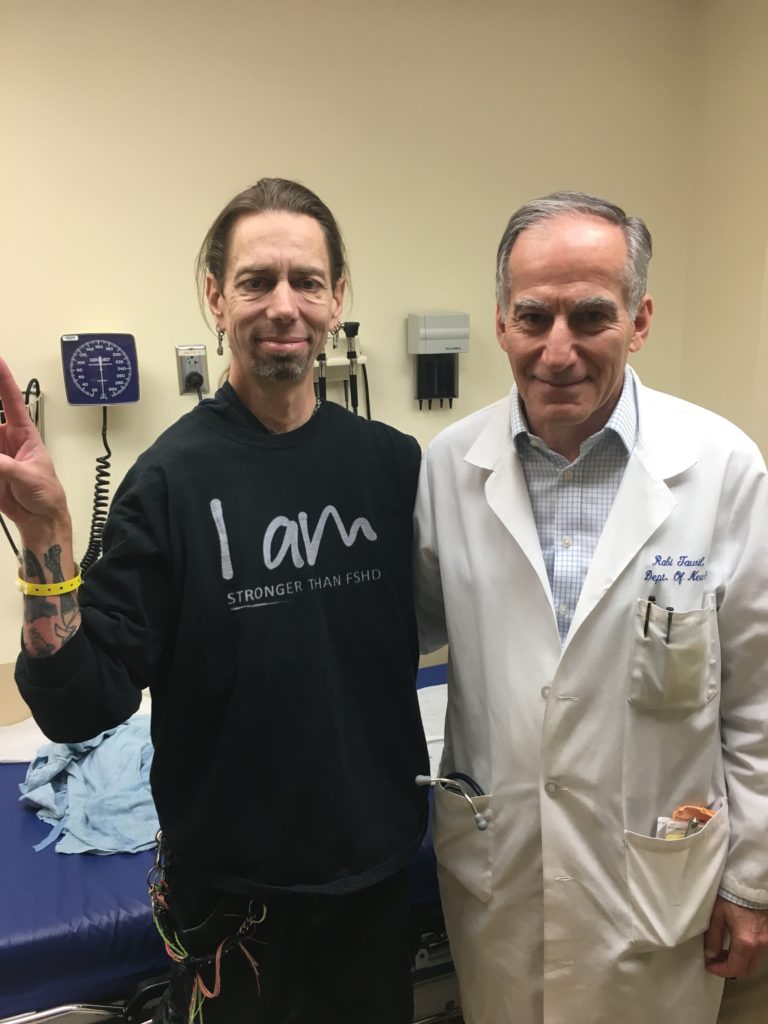
To crack the code of FSHD, patients are absolutely essential
All of the breakthroughs—the discovery of the genetic causes, understanding why some patients vary so greatly in the severity of their symptoms, teasing out the biochemical pathways that could point to future treatments—were made because patients stepped up to the plate.
Too often, we hear patients say they’ll volunteer when there’s a treatment. But we will never get to a treatment unless patients participate in fundamental research now. FSHD is uniquely human, so no laboratory mouse can ever fully model the disease. The genetic “package” that causes FSHD is found only in people. We owe an enormous debt to the patients who give DNA samples. Who submit to long interviews and exhausting physical tests. Allow a surgeon to cut out a small muscle sample. Who fight claustrophobia to lie in the narrow bore of an MRI machine.
Equally important are patients’ family members, both affected and unaffected, who provide the best experimental controls because of their shared genetic and environmental backgrounds. A parent or sibling who has very mild symptoms may hold the key to understanding the factors that protect against the full-blown development of FSHD symptoms in a more severely affected family member.
We are more hopeful today than ever before that a treatment is within sight. We cannot guarantee when that treatment will arrive, but here’s one thing we guarantee: If you volunteer for research, your participation will without question help move us a step closer to that day.
Scientific Overview of FSHD
Read the latest on wikipedia
Glossary of Scientific Terms
Anyone can MOVE for FSHD research
What’s so great about the MOVE study? A lot, if you are research geeks like us or care about getting treatments to patients sooner. MOVE is what’s called an “observational”… Read More »
2021 Best Poster Award goes to Alec DeSimone
Alec DeSimone, PhD, currently a postdoctoral researcher at Yale School of Medicine, was the winner of the Best Poster Award at the 2021 International Research Congress, held virtually on June… Read More »
Giorgio Tasca wins 2021 Young Investigator Award
The 2021 FSHD Society Young Investigator Award at the International Research Congress was awarded to Giorgio Tasca, MD PhD, a neurologist at the Fondazione Policlinico Universitario in Rome, Italy. Dr…. Read More »
ReDUX4 trial result exceeds expectations
By June Kinoshita, Director of Research and Patient Engagement “Positive benefit/risk supports losmapimod’s potential to be a transformative therapy for the treatment of FSHD”-Fulcrum Therapeutics Fulcrum Therapeutics announced today that… Read More »




